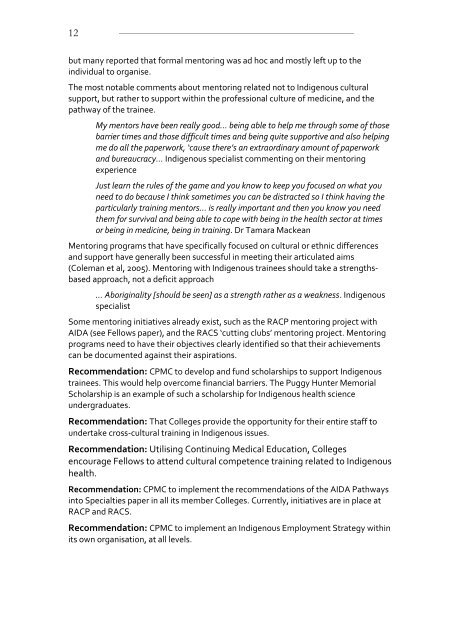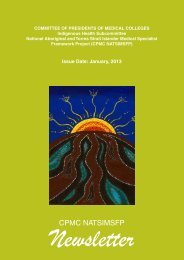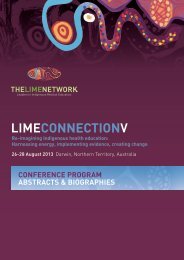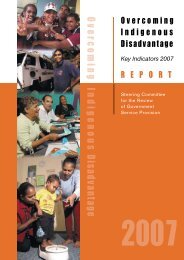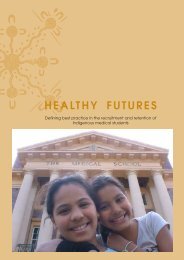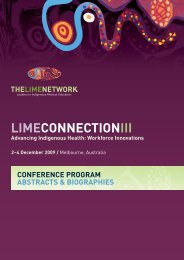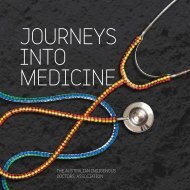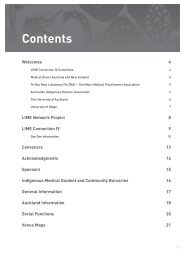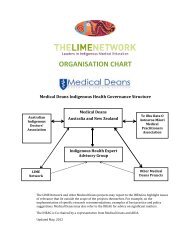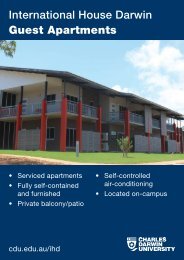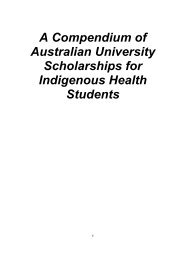View - LIME Network
View - LIME Network
View - LIME Network
Create successful ePaper yourself
Turn your PDF publications into a flip-book with our unique Google optimized e-Paper software.
12but many reported that formal mentoring was ad hoc and mostly left up to theindividual to organise.The most notable comments about mentoring related not to Indigenous culturalsupport, but rather to support within the professional culture of medicine, and thepathway of the trainee.My mentors have been really good… being able to help me through some of thosebarrier times and those difficult times and being quite supportive and also helpingme do all the paperwork, ‘cause there’s an extraordinary amount of paperworkand bureaucracy… Indigenous specialist commenting on their mentoringexperienceJust learn the rules of the game and you know to keep you focused on what youneed to do because I think sometimes you can be distracted so I think having theparticularly training mentors… is really important and then you know you needthem for survival and being able to cope with being in the health sector at timesor being in medicine, being in training. Dr Tamara MackeanMentoring programs that have specifically focused on cultural or ethnic differencesand support have generally been successful in meeting their articulated aims(Coleman et al, 2005). Mentoring with Indigenous trainees should take a strengthsbasedapproach, not a deficit approach… Aboriginality [should be seen] as a strength rather as a weakness. IndigenousspecialistSome mentoring initiatives already exist, such as the RACP mentoring project withAIDA (see Fellows paper), and the RACS ‘cutting clubs’ mentoring project. Mentoringprograms need to have their objectives clearly identified so that their achievementscan be documented against their aspirations.Recommendation: CPMC to develop and fund scholarships to support Indigenoustrainees. This would help overcome financial barriers. The Puggy Hunter MemorialScholarship is an example of such a scholarship for Indigenous health scienceundergraduates.Recommendation: That Colleges provide the opportunity for their entire staff toundertake cross‐cultural training in Indigenous issues.Recommendation: Utilising Continuing Medical Education, Collegesencourage Fellows to attend cultural competence training related to Indigenoushealth.Recommendation: CPMC to implement the recommendations of the AIDA Pathwaysinto Specialties paper in all its member Colleges. Currently, initiatives are in place atRACP and RACS.Recommendation: CPMC to implement an Indigenous Employment Strategy withinits own organisation, at all levels.


